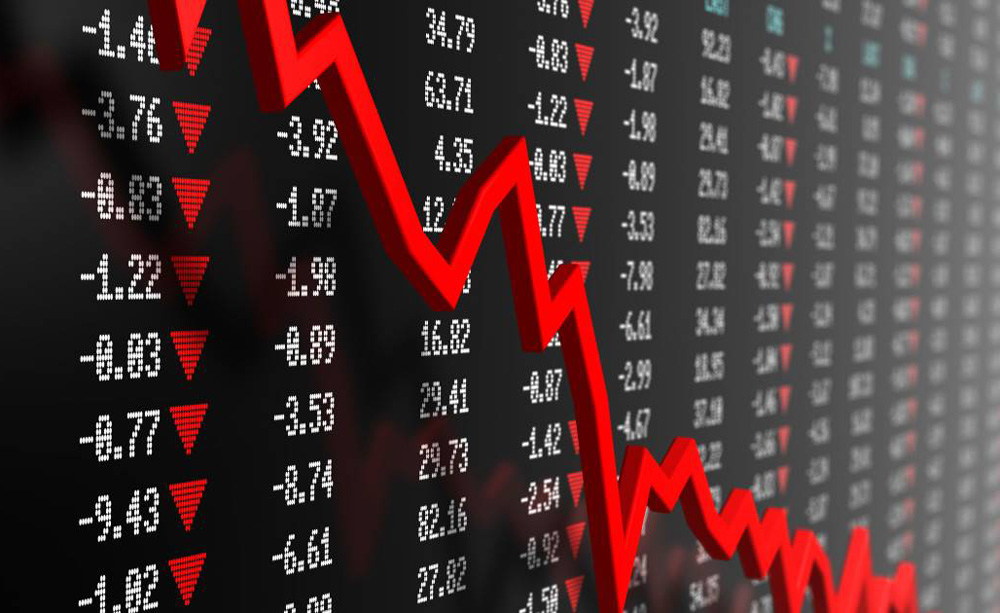Whether you looked at an eToro Test and decided to use the platform to invest or invest in stocks, crypto and shares by yourself, investing your money is a great way to earn extra money and secure your retirement. However, not everyone knows exactly how to buy shares straight away and often seek help from some sort of financial advisor. Some financial advisors/investment advisors say we are “investing for the long run.” They are quick to present studies showing that over the long run, investors will average 8% or whatever. In general, those are true statements, but most investors don’t have the 40 or 50 years those studies were designed for. Furthermore, when the hypothetical period of time begins can have a major influence on the average return. Take for example January 1, 2000 through December 31, 2015. The annualized return for the S&P 500 over that timeframe was just over 2.3%, had you reinvested the dividends it would’ve been just over 4.25% (source: https://dqydj.com/sp-500-return-calculator/). This is before any fees, trading commissions, or taxes owed! This is why people need to use all the resources they have available to them to make sure that investing in stocks is a money-saving and earning option rather than losing money. So by using things like paper trading apps can help to make managing stocks much easier by organizing their assets for them.
We are now in the longest running bull market in history. Many of you can’t help but ask your financial advisor or your friend who is a financial advisor, “When will it come to an end?” Let me spare you the suspense – even the best financial advisors like the team at Early Growth will have no idea how long the bull market will last. To ask only puts him/her/them in a position to have to come up with some answer that they believe sounds intelligent. Or they will quote their firm’s chief economist, or some other economist they recently watched on TV. No one ever knows the answer to this question. But I do know this: we are eventually going to have a recession and the accompanying bear market will be painful.
And when the inevitable bear market comes and you go to your advisor who may have told you to use a buy-and-hold strategy, and you ask why your portfolio is down by some amount that you consider unacceptable, he may simply shrug it off and say something like, “I am sorry, but we can’t predict the markets. If you sit tight it will come back eventually.” This “advice” might be reasonable if you are 30 years old, but not if you are 60.
I’ll probably get some angry emails as a result of the next (or perhaps the previous) few sentences, but you need to know this: a buy and hold investment strategy is lazy. If your advisor continually preaches about the wisdom of buying and holding, find a new advisor. At the very least, have her cut her fee dramatically. What are you paying for?
There are lots of ways to hedge a portfolio. But first, decide how much of a loss you can stomach, make sure your advisor knows this number. Then sit with her and discuss what strategies make sense for you that will mitigate your losses. If you are managing your own money, use a friend as a sounding board to determine if you’ve thought things through.
To be clear, hedging doesn’t necessarily mean completely removing risk or preventing any losses. If you invest, you run risk. But if you don’t have a plan of action to lessen risk, you are simply leaving your investment results to fate. To summarize, the question you should ask your advisor shouldn’t be “When is the next bear market coming?” The better question is “What are you doing to hedge my portfolio?”
Wealth Engage is located at 9155 S Dadeland Blvd Suite 1014, Miami, FL 33156. For more information, please visit WealthEngage.com. You can also reach Gus directly at 786-315-4870 or [email protected]
Securities offered through Raymond James Financial Services, Inc., member FINRA / SIPC. Investment advisory services offered through Raymond James Financial Services Advisors, Inc. Any information is not a complete summary or statement of all available data necessary for making an investment decision and does not constitute a recommendation. Investing involves risk. Any opinions are those of the author and not necessarily those of Raymond James. The website link included is provided for information purposes only. Raymond James is not affiliated with and does not endorse, authorize or sponsor any third-party web site or their respective sponsors. Raymond James is not responsible for the content of any web site or the collection or use of information regarding any web site’s users and/or members. Keep in mind that there is no assurance that any strategy will ultimately be successful or profitable nor protect against a loss. Expressions of opinion are as of this date and are subject to change without notice. There is no guarantee that these statements, opinions or forecasts provided herein will prove to be correct. The S&P 500 is an unmanaged index of 500 widely held stocks that is generally considered representative of the U.S. stock market. Indices are not available for direct investment. Any investor who attempts to mimic the performance of an index would incur fees and expenses which would reduce returns. The foregoing information has been obtained from sources considered to be reliable, but we do not guarantee that it is accurate or complete.













 Deering Estate
Deering Estate
 Massage Envy South Miami
Massage Envy South Miami
 Calla Blow Dry
Calla Blow Dry
 My Derma Clinic
My Derma Clinic
 Sushi Maki
Sushi Maki
 Sports Grill
Sports Grill
 The Healthy Kitchen
The Healthy Kitchen
 Golden Rule Seafood
Golden Rule Seafood
 Malanga Cuban Café
Malanga Cuban Café

 Kathleen Ballard
Kathleen Ballard
 Panter, Panter & Sampedro
Panter, Panter & Sampedro
 Vintage Liquors
Vintage Liquors
 The Dog from Ipanema
The Dog from Ipanema
 Rubinstein Family Chiropractic
Rubinstein Family Chiropractic
 Your Pet’s Best
Your Pet’s Best
 Indigo Republic
Indigo Republic




 ATR Luxury Homes
ATR Luxury Homes


 2112 Design Studio
2112 Design Studio
 Hamilton Fox & Company
Hamilton Fox & Company
 Creative Design Services
Creative Design Services
 Best Pest Professionals
Best Pest Professionals
 HD Tree Services
HD Tree Services
 Trinity Air Conditioning Company
Trinity Air Conditioning Company
 Cisca Construction & Development
Cisca Construction & Development
 Mosquito Joe
Mosquito Joe
 Cutler Bay Solar Solutions
Cutler Bay Solar Solutions


 Miami Royal Ballet & Dance
Miami Royal Ballet & Dance
 Christopher Columbus
Christopher Columbus
 Pineview Preschools
Pineview Preschools
 Westminster
Westminster
 Carrollton
Carrollton
 Lil’ Jungle
Lil’ Jungle
 Frost Science Museum
Frost Science Museum
 Palmer Trinity School
Palmer Trinity School
 South Florida Music
South Florida Music
 Pinecrest Orthodontics
Pinecrest Orthodontics
 Dr. Bob Pediatric Dentist
Dr. Bob Pediatric Dentist
 d.pediatrics
d.pediatrics
 South Miami Women’s Health
South Miami Women’s Health

 The Spot Barbershop
The Spot Barbershop
 My Derma Clinic
My Derma Clinic




 Miami Dance Project
Miami Dance Project

 Rubinstein Family Chiropractic
Rubinstein Family Chiropractic
 Indigo Republic
Indigo Republic

 Safes Universe
Safes Universe
 Vintage Liquors
Vintage Liquors
 Evenings Delight
Evenings Delight





 Atchana’s Homegrown Thai
Atchana’s Homegrown Thai
 Baptist Health South Florida
Baptist Health South Florida

 Laser Eye Center of Miami
Laser Eye Center of Miami
 Visiting Angels
Visiting Angels
 OpusCare of South Florida
OpusCare of South Florida

 Your Pet’s Best
Your Pet’s Best





 HD Tree Services
HD Tree Services
 Hamilton Fox & Company
Hamilton Fox & Company


 Creative Design Services
Creative Design Services